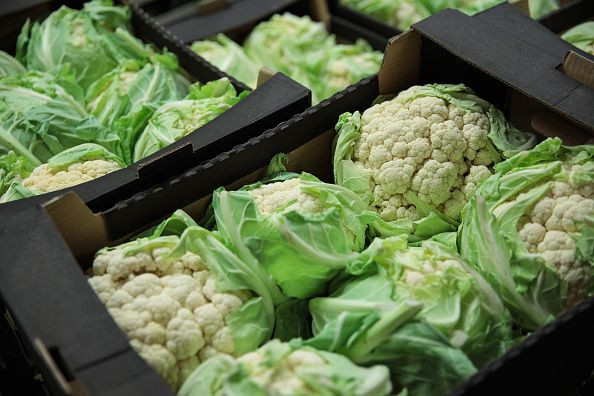Cauliflower And Lettuce Recall 2018: How Can You Get A Refund?

Adams Bros Farming, Inc. has issued a recall of red leaf lettuce, green leaf lettuce, and cauliflower for possible E.coli contamination.
Adams Bros Farming is making the recall out of an “abundance of caution.” The recalled vegetables have not tested positive for E.coli, and no illnesses have been reported. A full list of recalled cauliflower and red and green leaf lettuce can be found here.
The lettuce and cauliflower products were harvested between Nov. 27 and Nov. 30. The cauliflower was distributed to wholesalers in Arizona, California, Illinois, Louisiana, Maryland, North Carolina, New Jersey, New York, Ohio, and Pennsylvania as well as Tijuana, Mexico, and Canada.
The red leaf and green leaf lettuce were distributed to wholesalers in California, Colorado, Oregon, Texas, Pennsylvania, Washington, and Canada. The red leaf lettuce was also distributed in Minnesota and Tijuana.
Adams Bros Farming is urging consumers not to eat, sell or transfer the recalled produce. Customers should return the recalled lettuce and cauliflower products to the place of purchase or destroy it, Adams Bros Farming said.
Consumers with questions about the recall may contact Adams Bros Farming at 1-805-925-0339.
The recall was initiated after a discovery of E.coli bacteria in sediment that came from a reservoir near where the produce was grown.
E.coli may cause diarrhea which most adults can recover from in a week. Some consumers may develop Hemolytic Uremic Syndrome (HUS) – a form of kidney failure associated with E.coli bacteria. This is most susceptible in young children and elderly adults. HUS can lead to serious kidney damage or even death.
The recall was done in cooperation with the U.S. Food and Drug Administration.
© Copyright IBTimes 2025. All rights reserved.




















